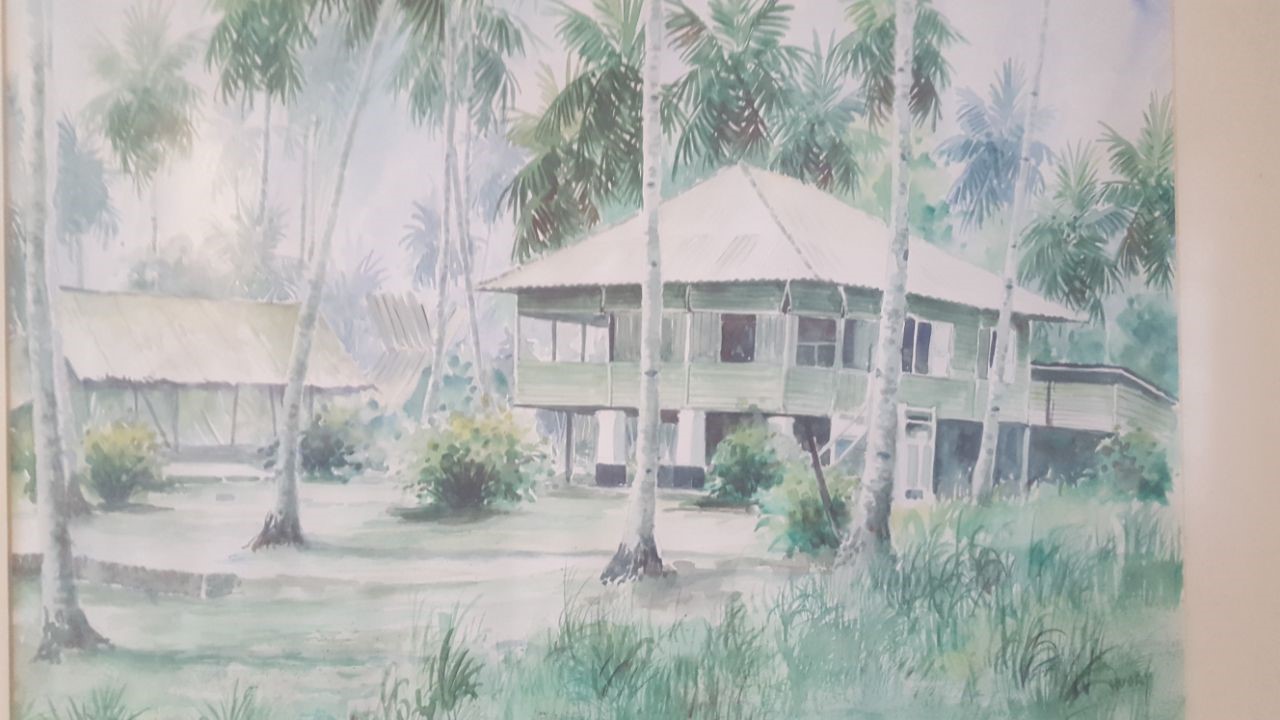Not all Japanese were involved in wartime atrocities. Contrary to the general impression of the Japanese, some locals recall the Japanese treating them with kindness. This portrait shares an alternative perspective of the Japanese during World War II through the memories of two individuals who experienced the Japanese Occupation.
The Dog
Leonard Martinus lived at Highland Road during the Japanese Occupation as his family, unlike other Eurasian families, was not interned in Changi Prison or sent to Bahau in Malaya. A few houses away lived a Japanese Officer, Captain Tanaka who enjoyed a good drink and singing Japanese songs. Leonard’s uncle used to be an accomplished piano player. Captain Tanaka used to visit the Martinus home nearly every evening, bringing food and singing Japanese songs whilst Leonard’s uncle played the piano. The family became good friends with Captain Tanaka.
One day, the Martinus family’s dog, Judy, bit a Japanese soldier very badly. What ensued was worrying. Japanese soldiers lined up members of the Martinus family who were home:
“Presumably to make an example of us by cutting off our Heads as was quite prevalent during the Japanese occupation of Singapore. However we were very very fortunate that Captain Tanaka came over to our house at that moment to relax and sing his songs”
Leonard Martinus
Whilst the Martinus family was saved from any misfortune in the nick of time, the dog had to go. Leonard’s father walked the dog many miles to his aunt’s house to save the dog.
After the Japanese surrendered, Captain Tanaka was put on trial. Leonard recalls how his father attended the trial and spoke on behalf of Captain Tanaka about how Tanaka had helped many families during the Japanese Occupation of Singapore.
The Cake
Leonard’s cousin, Alfred (or ‘Freddy’) Fernandez, also lived through the Japanese Occupation. The Fernandez family stayed at Pulau Tekong during this time.
The Japanese soldiers wanted to use the Fernandez home, but unlike other owners, they invited the Fernandez family to stay with them. Freddy recalls an amusing incident involving the Japanese at his family’s house:
“They roamed into the kitchen to do a bit of cooking. They saw my mother’s cake flavouring essences, like vanilla and rose essence, they dabbed it all over themselves, came to my father and said “this perfume is really good!”. The whole house was like living in a huge cake.”
Alfred Fernandez
The Japanese also rendered assistance to the Fernandez family when they needed it.
“In those days, [the Japanese] [went] into a house and they see whatever they want and they take and walk out with it… my uncle asked him [a Japanese officer] to write a letter we can post on the door, saying that these people are good and alright and don’t disturb them… he did that, that helped us quite a lot.”
Alfred Fernandez
Alfred observed that most parents warned their children about the Japanese and most children were indeed afraid of the Japanese. Fear and dislike towards the Japanese was the general sentiment of that time as the Japanese had caused much disruption to the locals’ lives.
The Films
Alfred shared that the Japanese liked children. One Japanese soldier that was in charge of British Prisoners of War took a liking to him.
“He used to hold my hand and take me to see Japanese pictures at the Capitol. All the locals were in front and I was seated with the Japanese officers and men.”
Alfred Fernandez
Even though Alfred could not speak Japanese, he went multiple times with this officer to the Capitol to view Japanese films. He did recognise, however, that not all individuals were treated this way. In particular, all persons walking past the Japanese School had to bow to the soldier standing guard.
“Everyone who passed had to stop and bow… One girl refused to bow, he caught hold of her and told her to undress until she was in her underwear only, and tied her to a tree for two hours… you see what they can do.”
Alfred Fernandez
After the Second World War ended, Mr Fernandez and his family got back to the old way of life. However, these stories remain ingrained in him.
